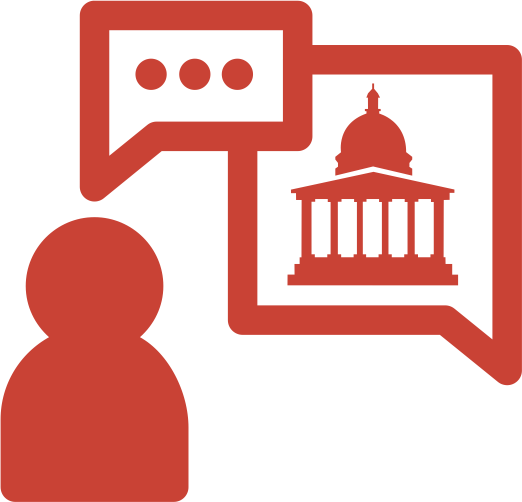Growing up in today’s fast-paced world comes with its unique set of challenges. As young people’s bodies and mind are constantly evolving, they are struggling to keep up with new ideas and manage their technological influences.
Over the years, we have seen statistical reports that stress on the need for educators to focus on student wellbeing. The educational community is emphasising that in order for students to excel academically, the learner’s other needs social and emotional need to be met too. Lately, the terms “whole-child” and “social-emotional learning” have become buzzwords in the world of schooling. While this concept has been around for more than two decades either in the form of character education or conflict resolution, these programs have set their foundation in the social-emotional learning framework.
Social emotional Learning Framework has been conceptualised by CASEL. It's the Collaborative for Academic, Social, and Emotional Learning. The five competencies are self-awareness, self-management, social awareness, relationship skills and responsible decision making.
A growing wealth of research literature shows that children who are socially competent and emotionally well-adjusted have a higher chance of enjoying success in education, acquiring future employment, and establishing secure and stable social relationships. They are less likely to be involved in criminal activities, substance use and abuse, and mental health problems. It has also been established that social and emotional deficiencies are major obstacles for children to be well-adapted in schooling and result in many behavioural problems such as disruptive behaviours, aggression, oppositional, and non-compliant behaviours.
Along with focus on building social and emotional competence, our “Minds Matter” Curriculum draws essential skills that our learners need to develop to be well-adjusted individuals in the future. Our curriculum is more robust and includes modules focused on positive psychology, social psychology and metal health literacy. Positive Psychology explores the art of self-awareness with a focus on the learner’s strengths and capabilities. It helps them build understanding around various positive aspects of their personality which can actually help maximise their potential, promote happiness and improve wellbeing.
Social Emotional Learning (SEL) has been the corner stone of our work and it takes into account our thoughts, emotions and behaviours. This quadrant focuses on adding therapeutic value through thought analysis, emotional-regulation and behaviour management; which encompasses all the features self-management. The Social Psychology quadrant puts focus on the environment around us; highlighting how relationships and social influence plays a major part in shaping our personalities and traits. It also gives the learner an opportunity to go beyond self-interest and move towards prosocial behaviours like altruism, generosity and service. The fourth quadrant is what makes the Minds Matter curriculum unique. Supporting Mental Health Literacy within the classroom can bring about systematic change to destigmatize mental health concerns and promote help-seeking behaviour.
In the Minds Matter classroom, learners are better able to:
Over the years, we have seen statistical reports that stress on the need for educators to focus on student wellbeing. The educational community is emphasising that in order for students to excel academically, the learner’s other needs social and emotional need to be met too. Lately, the terms “whole-child” and “social-emotional learning” have become buzzwords in the world of schooling. While this concept has been around for more than two decades either in the form of character education or conflict resolution, these programs have set their foundation in the social-emotional learning framework.
Social emotional Learning Framework has been conceptualised by CASEL. It's the Collaborative for Academic, Social, and Emotional Learning. The five competencies are self-awareness, self-management, social awareness, relationship skills and responsible decision making.
A growing wealth of research literature shows that children who are socially competent and emotionally well-adjusted have a higher chance of enjoying success in education, acquiring future employment, and establishing secure and stable social relationships. They are less likely to be involved in criminal activities, substance use and abuse, and mental health problems. It has also been established that social and emotional deficiencies are major obstacles for children to be well-adapted in schooling and result in many behavioural problems such as disruptive behaviours, aggression, oppositional, and non-compliant behaviours.
Along with focus on building social and emotional competence, our “Minds Matter” Curriculum draws essential skills that our learners need to develop to be well-adjusted individuals in the future. Our curriculum is more robust and includes modules focused on positive psychology, social psychology and metal health literacy. Positive Psychology explores the art of self-awareness with a focus on the learner’s strengths and capabilities. It helps them build understanding around various positive aspects of their personality which can actually help maximise their potential, promote happiness and improve wellbeing.
Social Emotional Learning (SEL) has been the corner stone of our work and it takes into account our thoughts, emotions and behaviours. This quadrant focuses on adding therapeutic value through thought analysis, emotional-regulation and behaviour management; which encompasses all the features self-management. The Social Psychology quadrant puts focus on the environment around us; highlighting how relationships and social influence plays a major part in shaping our personalities and traits. It also gives the learner an opportunity to go beyond self-interest and move towards prosocial behaviours like altruism, generosity and service. The fourth quadrant is what makes the Minds Matter curriculum unique. Supporting Mental Health Literacy within the classroom can bring about systematic change to destigmatize mental health concerns and promote help-seeking behaviour.
In the Minds Matter classroom, learners are better able to:
- Take an active role in creating a safe learning environment
- Have conversations about difficult topics
- Analyze a problem, find a solution, and put that solution into action
- Identify and manage their emotions better
- Navigate complex social situations
- Be an ally to their peers

 Online Admission
Online Admission Scholarship Programme
Scholarship Programme University Counselling
University Counselling Leadership
Leadership Voices at ABWA
Voices at ABWA